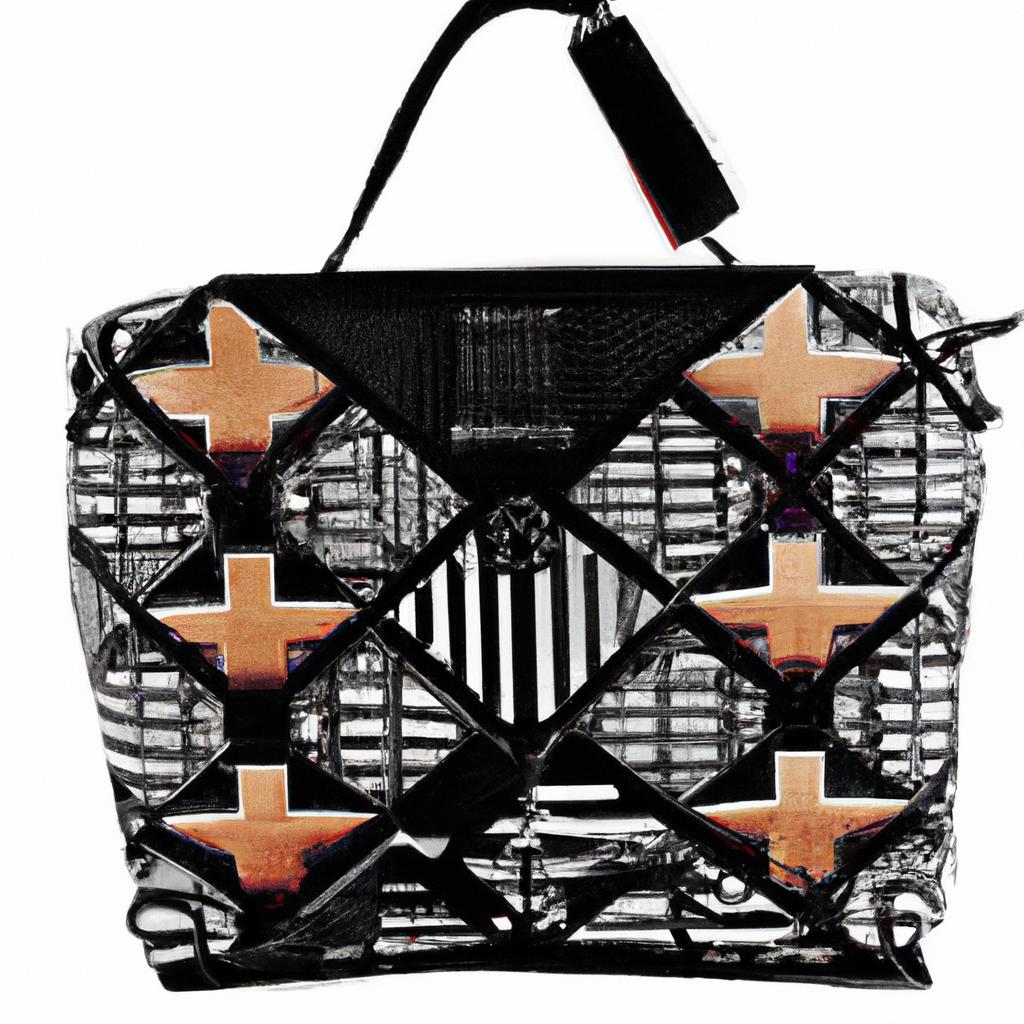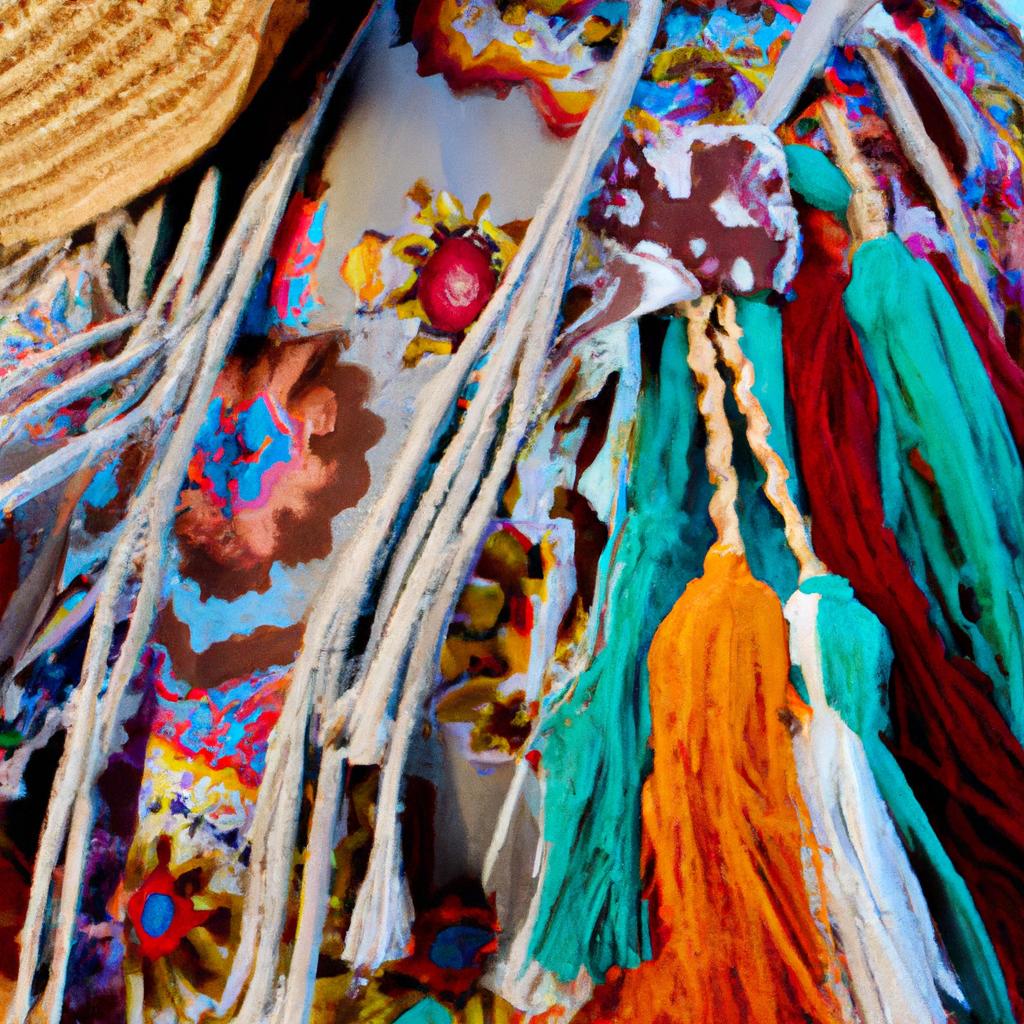
Introduction:
Welcome to our guide on sustainable fashion! In today’s world, where climate change and environmental issues are becoming more pressing, it’s important to consider the impact of the fashion industry on the planet. Sustainable fashion is a concept that aims to minimize this impact by incorporating eco-friendly materials, ethical production practices, and innovative technologies into the fashion industry.
The purpose of this guide is to delve deeper into the world of sustainable fashion and explore the various innovations and initiatives that are shaping the industry. We hope to educate and inspire you to make more conscious choices as a consumer and support brands that align with your values.
- Understanding Sustainable Fashion
- Innovations in Materials
- Initiatives for Ethical Production
- Technology and Sustainability
- The Impact of Sustainable Fashion
Join us as we discover how sustainable fashion is taking the fashion world by storm!
Introduction: The Importance of Sustainable Fashion
Welcome to our guide on sustainable fashion, a topic that is becoming increasingly important in today’s world. Sustainable fashion is a concept that focuses on creating clothing and accessories in an environmentally friendly and socially responsible manner. With the negative impacts of fast fashion on both people and the planet becoming more apparent, the need for sustainable options is greater than ever.
The fashion industry is notorious for its high levels of waste, pollution, and unfair labor practices. By introducing the topic of sustainable fashion, we hope to shed light on the importance of making more conscious and responsible choices when it comes to what we wear. This guide will explore some of the innovations and initiatives within the industry that are working towards a more sustainable future.
Introduction
Hello and welcome to our guide on sustainable fashion! In today’s fast-paced world, the fashion industry has a significant impact on the environment and society. However, with the increasing awareness of sustainability, there has been a growing demand for innovations and initiatives within the industry. That’s where this guide comes in – we will explore the world of sustainable fashion and its various developments.
Understanding Sustainable Fashion
First things first, let’s define sustainable fashion. It is an approach to clothing production that takes into consideration the environmental and social impact of the entire supply chain. Traditional fashion practices, such as fast fashion, have led to negative consequences for our planet and communities. Therefore, there is a need for innovative and sustainable solutions to change this damaging trend.
Innovations in Materials
One of the primary ways to make fashion more sustainable is by using eco-friendly materials. Organic cotton, bamboo, and recycled polyester are some examples of materials that are better for the environment compared to conventional ones. These materials also have added benefits, such as being biodegradable and requiring fewer resources to produce. Many brands have started incorporating these materials into their collections, showing that sustainable fashion is possible without sacrificing style.
Initiatives for Ethical Production
The fashion industry is notorious for its unethical production practices, including low wages, exploitation of workers, and unsafe working conditions. But there are initiatives and certifications, such as Fair Trade and B Corporation, that promote ethical production. These aim to ensure that the people involved in making our clothes are treated fairly and work in safe conditions. Several brands have implemented these initiatives, proving that ethical production is achievable within the fashion industry.
Technology and Sustainability
Advancements in technology are playing a crucial role in making fashion more sustainable. From 3D printing to blockchain technology and artificial intelligence, there are various innovative ways to reduce waste and improve supply chain management. Brands are utilizing these technologies to create more efficient and eco-friendly production processes, ultimately benefiting the environment.
The Impact of Sustainable Fashion
As we have seen, there are many innovations and initiatives within the sustainable fashion industry. These efforts have a positive impact on the environment, society, and economy. By supporting sustainable fashion and making conscious choices as consumers, we can contribute to a cleaner and fairer world for all.
If you have reached this far, congratulations! You are now equipped with knowledge about sustainable fashion and its various developments. We hope that this guide has inspired you to make more sustainable fashion choices and spread awareness about this important topic. Let’s work together towards a better and more sustainable future!
Understanding Sustainable Fashion:
In today’s world, where fashion is constantly changing and trends are ever-evolving, it’s important to consider the impact our choices have on the environment and society. That’s where the concept of sustainable fashion comes in.
What is sustainable fashion? Sustainable fashion is a movement that promotes clothing and accessories that are made ethically and with respect for the environment. It focuses on reducing the negative impact of the fashion industry on our planet and creating a more sustainable future.
The negative impact of fast fashion: Fast fashion, the cycle of producing and consuming cheap and trendy clothing at a rapid pace, has resulted in a significant amount of waste and pollution. From the use of harmful chemicals in production to the disposal of unwanted clothing in landfills, the fashion industry has a considerable effect on the environment.
The need for innovation and sustainability: As consumers become more aware of the impact of their choices, the demand for sustainable fashion has grown. This has led to various innovative solutions and initiatives being implemented within the industry.
Understanding Sustainable Fashion:
Sustainable fashion refers to the design, production, and distribution of clothing and accessories in an environmentally and socially responsible manner. Its key principles include minimizing carbon footprint, reducing waste, promoting ethical labor practices, and using eco-friendly materials.
The fashion industry is considered one of the most polluting industries in the world, with fast fashion being a major contributor. This term refers to the mass production of cheap, low-quality clothing that follows the latest trends and encourages frequent consumption. Fast fashion has a negative impact on the environment through excessive use of resources, pollution, and textile waste that ends up in landfills.
To combat these issues, the concept of sustainable fashion has emerged, incorporating innovative solutions and initiatives to create a more responsible and conscious industry.
Negative Impact of Fast Fashion
In recent years, the fashion industry has seen a rise in fast fashion, where clothing is produced at a rapid pace and sold at low prices. While this may seem like a convenient and affordable option for consumers, it comes at a high cost to the environment and society.
- Environmental Impact:
- Social Impact:
The production of fast fashion is highly resource-intensive and polluting. The use of synthetic fabrics and chemicals in manufacturing contributes to air and water pollution, as well as greenhouse gas emissions. Additionally, the disposal of fast fashion clothing in landfills leads to further environmental damage as these clothes often take years to decompose.
The demand for cheap and fast-produced clothing has led to exploitative labor practices in countries where labor laws are not enforced. This results in poor working conditions and underpaid workers, particularly in developing countries. Furthermore, the constant turnover of trends and styles perpetuated by fast fashion creates a culture of overconsumption, leading to harmful effects on mental health and self-esteem.
This unsustainable cycle of fast fashion has significant consequences on our planet and people, making it imperative for the fashion industry to shift towards a more sustainable model.
Understanding Sustainable Fashion
Sustainable fashion is a growing movement in the fashion industry that promotes environmentally and socially responsible practices. With the rise of fast fashion, which focuses on producing cheap and trendy clothing at a rapid pace, there has been a detrimental impact on the environment, as well as exploitation of workers in the supply chain. It is important to recognize the need for innovative and sustainable solutions that can address these issues and promote positive change.
- Defining Sustainable Fashion: Sustainable fashion involves considering the entire lifecycle of a garment, from design and production to distribution and disposal. It prioritizes ethical and sustainable practices, such as using eco-friendly materials and ensuring fair labor conditions.
- The Negative Impact of Fast Fashion: The rise of fast fashion has led to an increase in waste, pollution, and exploitation within the industry. This has resulted in damage to the environment and harm to workers, particularly in developing countries.
- The Need for Innovations and Initiatives:Sustainable fashion is not just about being environmentally friendly, but also about addressing the social and economic impacts of the fashion industry. This calls for innovative and sustainable solutions that can create positive change and promote a more responsible industry.
Innovations in Materials
One of the key aspects of sustainable fashion is the use of eco-friendly materials. Traditional fashion materials like cotton, leather, and polyester have a significant negative impact on the environment due to their production processes. However, there are now various innovative materials being used in sustainable fashion that are better for the planet and its people.
Organic cotton, for example, is grown without the use of harmful chemicals and pesticides, making it safer for both the environment and the farmers. Additionally, bamboo is a fast-growing and sustainable material that requires less water and resources to produce compared to traditional cotton. Recycled polyester, made from recycled plastic bottles, reduces the need for new materials and helps prevent waste from ending up in landfills.
These eco-friendly materials do have their limitations, such as higher production costs and limited availability, which can make them more expensive for consumers. However, some sustainable fashion brands are finding ways to overcome these challenges by combining these materials with traditional ones or using innovative techniques, like upcycling, to reduce costs.
Brands like Patagonia, Reformation, and Eileen Fisher are already incorporating these materials into their collections and setting an example for others in the industry. By using sustainable materials, these brands not only reduce their environmental impact but also promote a more ethical and responsible approach to fashion production.
Innovations in Materials
Sustainability in fashion starts with the materials used in production. Traditional materials like cotton and polyester have a significant impact on the environment due to their production processes and use of harmful chemicals. That’s why many brands are turning to eco-friendly materials for their collections.
Organic cotton is grown without the use of pesticides or synthetic fertilizers, making it a more environmentally friendly choice than traditional cotton. Bamboo is also gaining popularity as a sustainable material due to its quick growth and ability to absorb carbon dioxide. Recycled polyester, made from plastic bottles and other waste, reduces the amount of plastic ending up in landfills and oceans.
These materials have various benefits, such as being biodegradable, reducing water and energy consumption, and promoting circular fashion. However, there are also limitations to consider, such as higher production costs and limited availability.
An increasing number of brands are incorporating these eco-friendly materials into their collections, prioritizing sustainability over cheap and harmful alternatives.
- Example brand 1: XYZ uses organic cotton in their clothing line to reduce their carbon footprint.
- Example brand 2: ABC’s swimwear collection is made out of recycled polyester, showing their commitment to sustainability.
The Benefits and Limitations of Eco-Friendly Materials in Sustainable Fashion
One of the key aspects of sustainable fashion is the use of eco-friendly materials. These materials are grown or produced in a way that minimizes harm to the environment and promotes ethical production practices. Let’s take a closer look at some of the benefits and limitations of these materials.
- Organic Cotton: Produced without the use of harmful pesticides and chemicals, organic cotton is better for the environment and the health of farmers. It also uses less water compared to conventional cotton farming.
- Bamboo: This fast-growing plant requires less water and land to grow compared to other crops. It is also biodegradable and can be grown without the use of pesticides. However, the process of turning bamboo into fabric can be chemically intensive, which may negate some of its eco-friendly benefits.
- Recycled Polyester: Made from recycled plastic bottles, this material reduces the amount of waste going into landfills. It also requires less energy and resources to produce compared to virgin polyester. However, the recycling and production processes can still have a negative impact on the environment if not done responsibly.
Eco-friendly materials can have limitations, such as higher production costs and limited availability. This can result in higher prices for sustainable fashion items compared to fast fashion options. However, supporting these materials and brands that use them can lead to a more sustainable and ethical fashion industry in the long run.
Innovations in Materials:
One of the key ways that the fashion industry can become more sustainable is by using eco-friendly materials. These materials are made from natural or recycled fibers, reducing the environmental impact of production and consumption. Here are some examples of brands that have incorporated these materials into their collections:
- Reformation: This brand uses sustainable fabrics like TENCEL™ lyocell, recycled cashmere, and repurposed deadstock fabrics to create their trendy and eco-conscious clothing.
- Eileen Fisher: They have a goal to use 100% organic cotton, linen, and wool in their collections and have also started experimenting with alternative materials like organic hemp and recycled polyester.
- Patagonia: Known for their commitment to sustainability, Patagonia uses materials like organic cotton, recycled polyester, and TENCEL™ lyocell in their outdoor clothing and gear.
These are just a few examples of brands that are leading the way in using innovative and sustainable materials in their products. By supporting these brands, consumers can contribute to a more eco-friendly and ethical fashion industry.
Initiatives for Ethical Production:
In the fashion industry, there has been a growing concern about unethical production practices that harm both people and the planet. To address this issue, several initiatives have been introduced to promote ethical production.
- Fair Trade: This is a certification that ensures fair pay and safe working conditions for garment workers in developing countries. It also supports environmentally sustainable practices.
- B Corporation: Companies with this certification meet high social, environmental, and transparency standards. This encourages businesses to prioritize people and the planet over profits.
Many brands have incorporated these initiatives into their production processes and are making positive changes in the industry. By supporting these brands, consumers can contribute to a more ethical and sustainable fashion industry.
Initiatives for Ethical Production
The fashion industry has long been plagued with unethical production practices, including sweatshops, child labor, and exploitation of workers. These practices not only have a negative impact on the workers involved, but also contribute to environmental degradation and social inequality. However, the good news is that there are now several initiatives in place to promote ethical production in the fashion industry.
- Fair Trade: This certification guarantees that workers involved in producing the products were treated fairly and paid a fair wage. It also ensures safe working conditions and prohibits child labor. Brands such as Patagonia and People Tree have obtained this certification, showing their commitment to ethical production.
- B Corporation: This certification is given to businesses that meet high standards of social and environmental performance, accountability, and transparency. Many sustainable fashion brands, such as Everlane and Reformation, have obtained this certification, showcasing their dedication to making a positive impact.
By supporting brands with these certifications, consumers can help drive the demand for ethical production practices in the fashion industry. Furthermore, it is important for brands to be transparent about their supply chain and production processes, allowing consumers to make informed choices.
It is also encouraging to see that more and more brands are taking steps towards ethical production, even without obtaining certifications. For example, some are implementing fair wages, safe working conditions, and using sustainable materials in their production processes. This shows that ethical production is becoming an integral part of the fashion industry, and consumers can play a crucial role in supporting this change.
Initiatives for Ethical Production
The fashion industry has been plagued with issues of unethical production, including sweatshop labor, unsafe working conditions, and underpaid workers. To address these problems, various initiatives and certifications have been established to promote ethical production.
- Fair Trade: This organization works to ensure that producers in developing countries receive fair compensation for their work and have safe working conditions. Brands that are Fair Trade certified must adhere to strict standards regarding labor rights and wages.
- B Corporation: B Corp is a certification given to companies that meet high standards of social and environmental performance, transparency, and accountability. This includes fair labor practices and ethical production methods.
- Other initiatives: There are also other initiatives, such as the Better Cotton Initiative, which focuses on sustainable cotton production, and the Zero Discharge of Hazardous Chemicals (ZDHC) program, which aims to eliminate hazardous chemicals from the textile supply chain.
By supporting brands that adhere to these initiatives and certifications, consumers can play a role in promoting ethical production practices in the fashion industry. It also encourages companies to prioritize sustainability and social responsibility in their operations.
Initiatives for Ethical Production:
In the fast-paced world of fashion, ensuring ethical production practices has been a major challenge. However, some brands have stepped up to the plate and are leading the way in promoting fair and ethical production.
One example is Patagonia, a company that is known for its commitment to sustainability. They are a certified B Corporation, which means they meet high standards of social and environmental performance, transparency, and accountability. Patagonia also ensures that their workers are treated fairly and paid a living wage.
Another brand making strides in ethical production is People Tree, a pioneer in sustainable fashion. They have been certified by Fair Trade International, which ensures that workers are paid fair wages and work in safe and ethical conditions. People Tree also uses eco-friendly materials and has a transparent supply chain.
H&M, a brand that has faced criticism for its fast fashion practices, has also made efforts towards ethical production. They have launched a garment collecting program where customers can return unwanted clothing and the materials are recycled or reused. H&M has also committed to paying all its workers a living wage by 2018.
These examples show that implementing initiatives for ethical production is not only possible but also necessary for a more sustainable fashion industry. As consumers, we can support these brands and encourage others to follow in their footsteps.
Technology and Sustainability
In today’s digital age, technology has become an integral part of our lives. And in the world of fashion, it is now playing a key role in promoting sustainability. With the rise of fast fashion and its damaging impact on the environment, the need for innovative and sustainable solutions has never been greater.
One way technology is contributing to sustainable fashion is through materials. Eco-friendly alternatives like organic cotton, bamboo, and recycled polyester are being used by brands to reduce their environmental footprint. Additionally, advancements in technology have made it possible to create new sustainable materials, such as leather made from mushrooms or pineapple leaves.
But it’s not just about the materials, technology is also being used to promote ethical production practices. By implementing blockchain technology, brands can track their supply chain and ensure transparency and fair treatment of workers. 3D printing is another innovation that allows for more accurate and efficient production, reducing waste and overproduction.
Furthermore, artificial intelligence (AI) is being used to improve sustainability in the fashion industry. AI-powered algorithms can help brands optimize their supply chain, reduce their carbon footprint, and make more sustainable business decisions.
The impact of technology on sustainable fashion is undeniable. It is driving positive change in the industry and offering hope for a more sustainable future. By supporting brands that are embracing technology and implementing sustainable initiatives, we can all contribute to a healthier planet for future generations.
Technology and Sustainability
In today’s world, technology is constantly evolving and transforming various industries, and sustainable fashion is no exception. With the negative impact of fast fashion on the environment becoming more evident, individuals and companies have turned to technology for solutions.
One way technology is making fashion more sustainable is through the use of 3D printing. This process allows for a more precise and efficient production of garments, reducing waste and minimizing the need for mass production.
Another innovative technology being incorporated in sustainable fashion is blockchain. This digital ledger system provides transparency in the supply chain by tracking and recording every step of the production process. This ensures ethical and sustainable practices are being followed by brands.
Artificial intelligence (AI) is also being used in the fashion industry to improve sustainability. AI algorithms can analyze data and consumer behavior to optimize production processes and reduce waste. It also helps brands accurately predict demand, preventing overproduction and excess inventory.
- 3D printing reduces waste and allows for more precise production
- Blockchain provides transparency and monitors ethical practices in the supply chain
- AI improves production processes and prevents overproduction
Thanks to these technologies, sustainable fashion is becoming a reality. By implementing these innovations, the industry is moving towards a more environmentally friendly and ethical future.
Innovations in Sustainable Fashion
With the growing concern for the environment, technology has been playing a crucial role in making fashion more sustainable. Concepts like 3D printing, blockchain, and artificial intelligence are being incorporated into the industry to reduce its negative impact on the planet.
- 3D printing: This innovative technology allows for the creation of clothing and accessories through layer-by-layer printing of materials, minimizing waste and reducing production time. It also allows for customization, reducing the need for mass production.
- Blockchain: This technology is used to track and verify the supply chain of fashion products, ensuring transparency and ethical sourcing. It also helps in reducing counterfeit products, promoting sustainability in the long run.
- Artificial Intelligence (AI): AI is being used in fashion to optimize manufacturing processes, reduce waste, and streamline supply chain management. It can also help in predicting consumer demand, reducing overproduction.
Innovations in Technology: Sustainable Manufacturing and Supply Chain Management
Technology has been a game changer in the fashion industry, particularly when it comes to sustainability. Brands are now utilizing innovative technologies to address the environmental and social impacts of production processes and supply chain management.
- Adidas, a global athletic wear brand, has partnered with Parley for the Oceans to create shoes made from recycled ocean plastic using 3D printing technology.
- Denim brand Levi’s is using blockchain to trace the origin and journey of their cotton, promoting transparency in their supply chain and ensuring ethical sourcing.
- Puma has introduced a closed-loop system that turns textile waste into new fibers, reducing the amount of clothing that ends up in landfills.
These are just a few examples of how technology is making sustainable manufacturing and supply chain management possible. By incorporating this technology, brands can reduce their carbon footprint, minimize waste, and improve working conditions for garment workers.
Sustainable fashion is no longer just a trend, but a necessary shift towards a more responsible and ethical industry. As consumers, we have the power to support these innovations and initiatives by making mindful purchasing decisions. Let’s join forces with these brands and work towards a more sustainable future for fashion.
The Impact of Sustainable Fashion
Sustainable fashion is not just a passing trend, it has the power to make a positive impact on the world we live in. By incorporating innovative materials and ethical production practices, the fashion industry can reduce its negative impact on the environment and society.
One of the key impacts of sustainable fashion is reducing carbon emissions. Traditional fashion production involves high energy consumption and uses harmful chemicals, contributing to air and water pollution. However, by embracing more sustainable methods and materials, the industry can significantly decrease its carbon footprint.
Sustainable fashion also has a positive impact on society, particularly on garment workers. The majority of clothing is produced in developing countries where labor laws are often not enforced, leading to exploitation and unsafe working conditions. Initiatives promoting ethical production ensure fair wages and safe working conditions for these workers, improving their quality of life.
Moreover, the innovations and initiatives in sustainable fashion have a ripple effect on the economy. By supporting environmentally and socially responsible brands, consumers are encouraging the growth of a more sustainable fashion market. This, in turn, creates job opportunities and boosts economic growth in the industry.
As consumers, our choices have a significant impact on the fashion industry. By choosing to support sustainable fashion, we are sending a message to brands that we value ethical and environmentally responsible practices. This encourages more brands to adopt sustainable methods and leads to a positive change in the industry as a whole.
So, let’s use the power of our choices to make a meaningful impact through sustainable fashion!
The Impact of Sustainable Fashion
Throughout this guide, we have explored various innovations and initiatives within the fashion industry that are promoting sustainability. From alternative materials to ethical production practices and technology, these efforts are making a positive impact on the environment, society, and economy.
By incorporating eco-friendly materials like organic cotton and recycled polyester, brands are reducing their carbon footprint and promoting better resource management. Initiatives such as Fair Trade and B Corporation also ensure fair wages and safe working conditions for garment workers, promoting social sustainability.
Technology is also playing a significant role in making fashion more sustainable. Concepts like 3D printing and artificial intelligence are being utilized for sustainable manufacturing and supply chain management, reducing waste and increasing efficiency.
All of these innovations and initiatives combined are bringing positive change to an industry that has been known for its negative impact on the planet and its people. As consumers, we can support these efforts by choosing sustainable fashion options and spreading awareness about its importance.
Let’s continue to support and encourage innovation and initiatives in sustainable fashion, so we can create a more sustainable and ethical future for the industry and our planet.
The Impact of Sustainable Fashion
Sustainable fashion is not only good for the environment, but it also has a positive impact on society and the economy. By choosing to support brands that prioritize sustainability, we are helping to reduce carbon emissions, protect natural resources, and promote fair labor practices.
On an environmental level, sustainable fashion reduces the use of toxic chemicals and minimizes waste by utilizing eco-friendly materials and production methods. This helps to preserve our planet and its resources for future generations.
In terms of society, sustainable fashion promotes ethical working conditions and fair wages for garment workers. It also supports local artisans and communities, especially in developing countries where fast fashion production often takes place.
Economically, sustainable fashion can have a significant impact. By shifting towards more sustainable practices, the fashion industry can create new jobs and boost local economies. It also encourages innovation and competition, leading to more diverse and unique products for consumers.
Overall, the innovations and initiatives taken by the sustainable fashion industry have a far-reaching positive impact on the environment, society, and economy. As consumers, we have the power to support this movement with our choices and contribute to a more sustainable and ethical future for the fashion industry.
Conclusion:
In today’s world, it is more important than ever to support sustainable fashion and make conscious choices as consumers. By choosing to invest in eco-friendly materials, supporting ethical production practices, and embracing technology, we can all contribute to a more sustainable fashion industry. As consumers, our choices have a significant impact on the environment, society, and economy. Let’s use our power to support brands and initiatives that are making a positive difference and help create a more sustainable future for all.
Conclusion:
In today’s world, the fashion industry is facing increasing pressure to address its negative impact on the environment and society. The concept of sustainable fashion has emerged as a solution to this problem, promoting responsible and ethical practices throughout the supply chain. Through innovations in materials, initiatives for ethical production, and the use of technology, the industry is making strides towards a more sustainable future. These efforts have not only reduced the environmental impact of fashion, but also improved working conditions for garment workers and supported local communities. As consumers, we have the power to support these efforts by making conscious choices and supporting brands that prioritize sustainability. Let’s continue to spread awareness and join the movement towards a more sustainable and ethical fashion industry.
The Importance of Sustainable Fashion and the Need for Innovation and Initiatives
Sustainable fashion is crucial for the well-being of our planet and society. With the negative impact of fast fashion on the environment and workers becoming increasingly evident, there is a pressing need for change and improvement in the fashion industry. This is where innovations and initiatives come into play.
In order to combat the harmful effects of the fashion industry, it is essential for companies to continuously innovate and implement sustainable solutions. By using eco-friendly materials, promoting ethical production practices, and utilizing technology, these initiatives aim to reduce the industry’s impact on the environment and promote social responsibility.
It is important to remember that sustainable fashion is not just a trend, but a necessary shift towards a more responsible and ethical way of consuming fashion. With the support of consumers, innovative and sustainable fashion initiatives can make a significant difference in preserving our planet and improving the lives of garment workers.
As conscious consumers, we have the power to drive the change we want to see in the fashion industry. By supporting brands that prioritize sustainability and holding companies accountable for their actions, we can create a demand for more sustainable practices and encourage further innovation and progress.
In conclusion, sustainable fashion is not just about making environmentally friendly clothing, but it also encompasses ethical production, fair labor practices, and social responsibility. The continuous need for innovation and initiatives in the industry reinforces the significance of sustainable fashion and the positive impact it can have on our world.
Conclusion: Support Sustainable Fashion
Sustainable fashion is an important topic in today’s world and it is our responsibility as consumers to make conscious choices. By choosing to support brands that are innovating and implementing sustainable initiatives, we can contribute towards creating a more sustainable future for the fashion industry.
One way to do this is by spreading awareness and educating others about the negative impact of fast fashion and the importance of supporting sustainable alternatives. Encourage your friends and family to make informed choices when purchasing clothing and to research brands that prioritize sustainability.
In addition, actively support brands that are making a positive impact by purchasing from them and promoting their efforts on social media. By doing so, we can create a demand for sustainable fashion and encourage other brands to adopt more sustainable practices.
Together, we can help drive the fashion industry towards a more sustainable and ethical future. Let’s take small steps towards creating a big change and supporting innovations and initiatives in sustainable fashion.
comments: 0


 Redefining Fashion: How Startups are Disrupting the Industry
Redefining Fashion: How Startups are Disrupting the Industry  Revolutionizing the Runway: How Social Media is Transforming Fashion
Revolutionizing the Runway: How Social Media is Transforming Fashion  Unveiling the Business of Fashion: A Look into its Impact on the Global Economy
Unveiling the Business of Fashion: A Look into its Impact on the Global Economy  Finland’s Down’s model Maija makes strides on catwalk
Finland’s Down’s model Maija makes strides on catwalk  How to Create Adjustment Layers Based on Color
How to Create Adjustment Layers Based on Color  Fashion Fusion: The Impact of Designer Collaborations on the Industry
Fashion Fusion: The Impact of Designer Collaborations on the Industry  Revolutionizing Fashion: How Technology is Shaping the Industry Today
Revolutionizing Fashion: How Technology is Shaping the Industry Today  From East to West: Exploring Global Fashion Trends Across Continents
From East to West: Exploring Global Fashion Trends Across Continents  Cruising in Style with CarmelLimo: Because You Deserve to Feel Fancy
Cruising in Style with CarmelLimo: Because You Deserve to Feel Fancy  Dress to Impress: Essential Menswear for Every Weather Condition
Dress to Impress: Essential Menswear for Every Weather Condition